One of the active participants of the
forum Nag.ru shared a story about his work. Next, we will discuss how to conduct optics in the cottage village under construction. A lot of useful practical information and extraordinary ways to solve this or that problem.
What we have? A cottage village under construction, where all communications have already been connected. The case remains for the Internet.
The cable can be safely laid underground, without fear for possible damage from builders in the future. There is already fiber through the territory, which means installation of the soil couplings, and then laying them in a trench.
After a long search and analysis, the choice fell on SSD
clutches MTOK-B1 / 216-1KT3645-K-44.
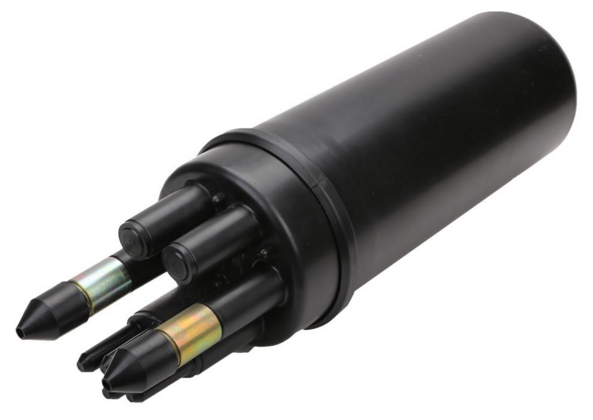
Installing the cable in the clutch is laborious and requires patience. Before it starts, it is worth preparing a workplace, especially if you have to work in the open. Requires folding table and table for coupling. It would be nice to set up a tent for welding.

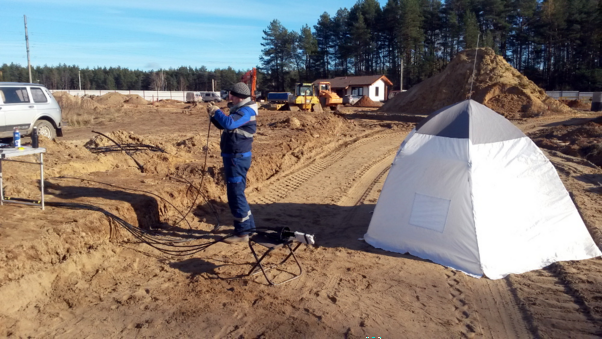
The first installation work took place even at above zero temperature. Our next run was already at minus six degrees.
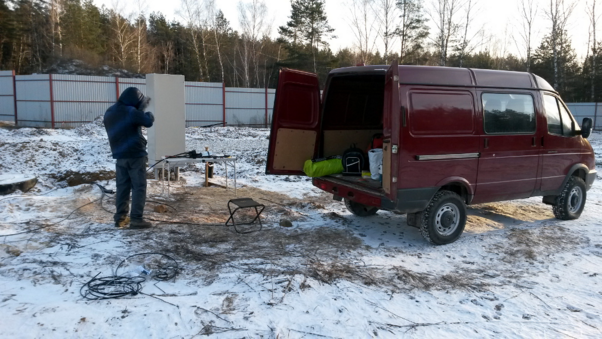
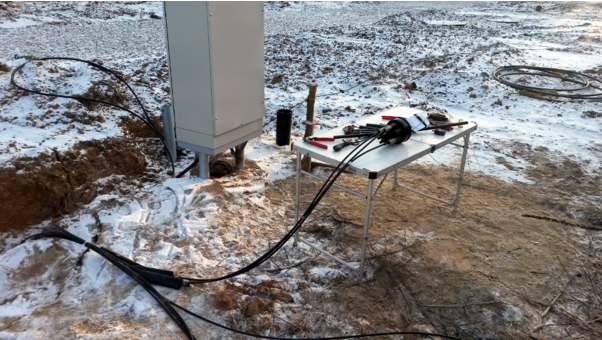


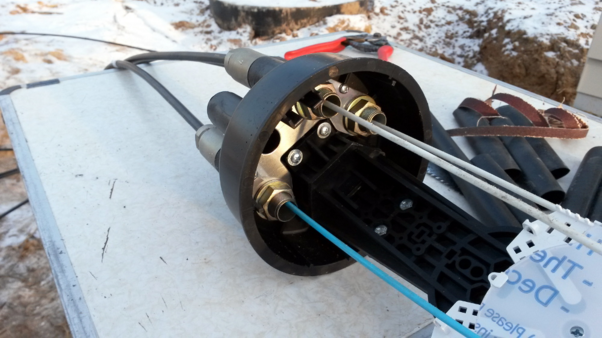
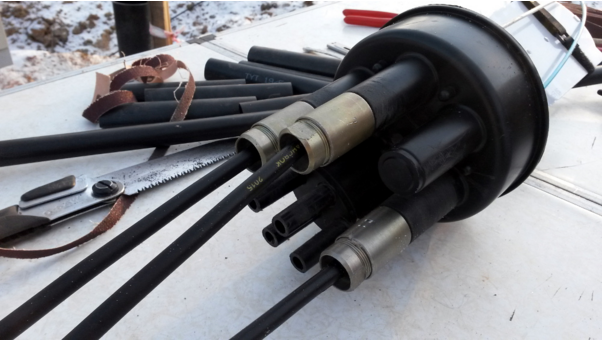
If the coupling is not fixed, it constantly slips out of the hands when installing the cable. Therefore, for fixing it is necessary to use a clamp - it is attached with brackets to the table, and the coupling fixes in the clamp.
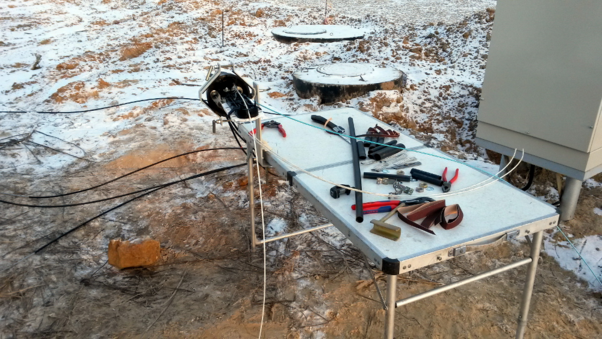
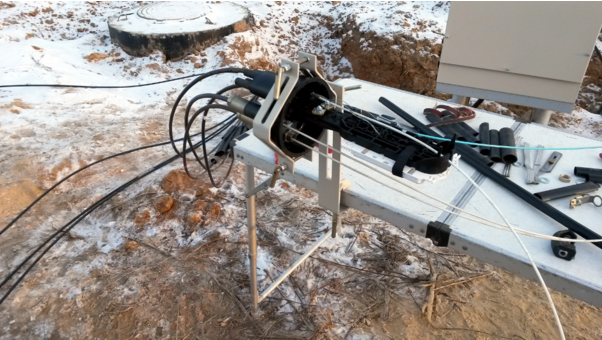
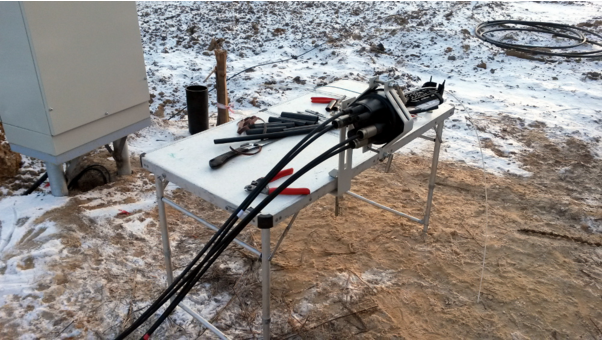
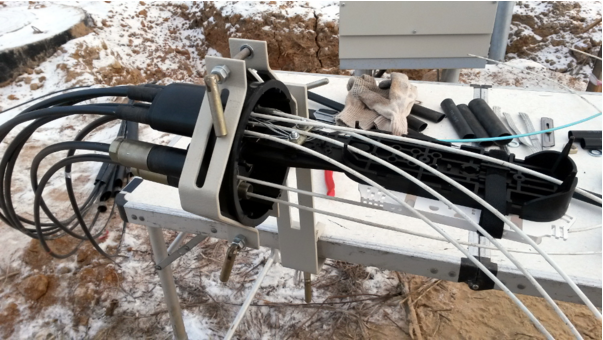

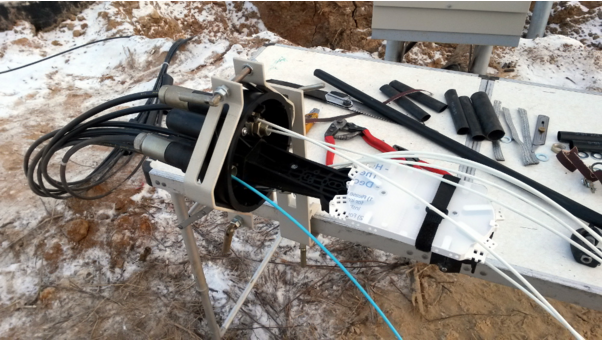

Next, the coupling is placed in the heat shrinkage and is left, which is called “on demand”.
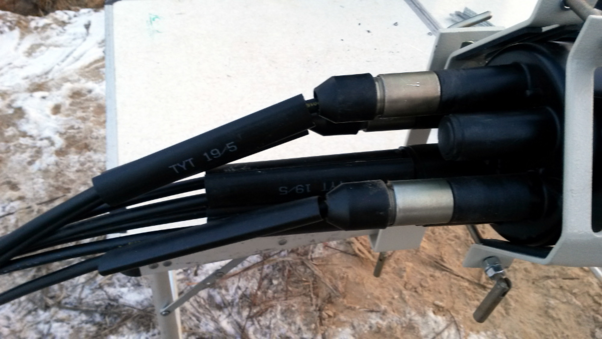
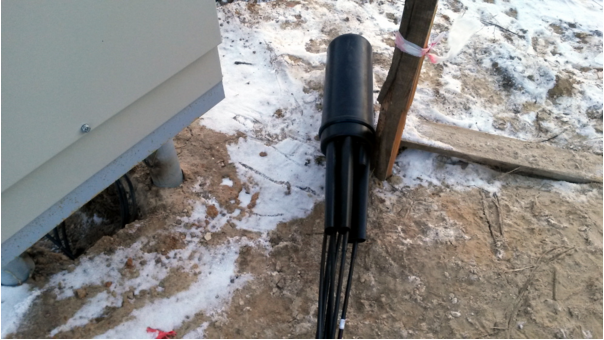
The next time we arrived at the site at minus eighteen degrees.
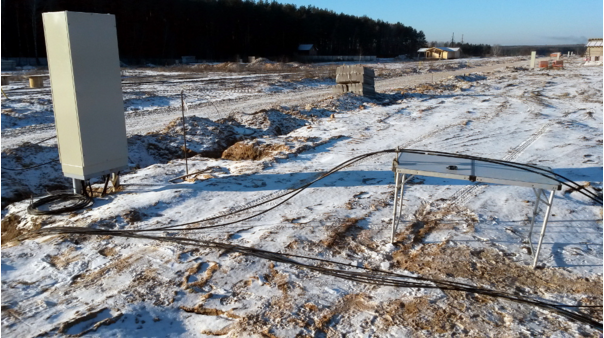
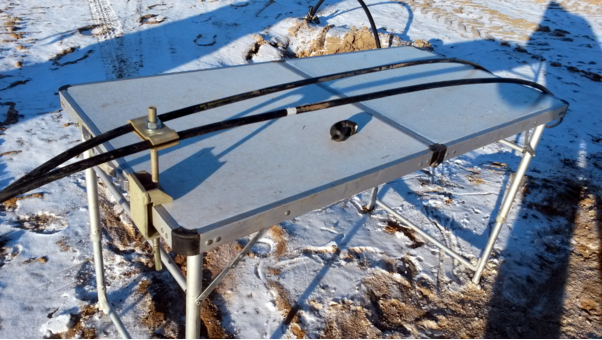
The clamp allows you to cope with work alone. At low temperatures, the cable behaves differently depending on the manufacturer. For example, in OFS it is difficult to cut the outer casing, but it is relatively easy to clean the “fat” from the modules.
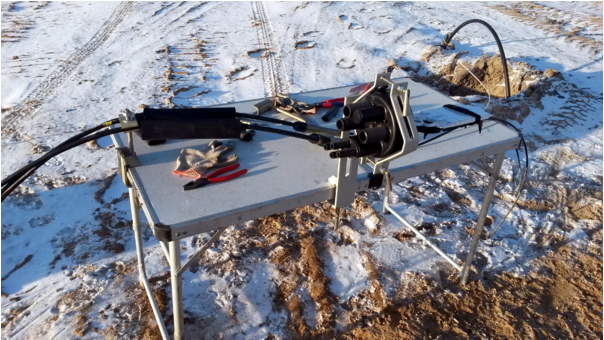

In our case, the cable jacket was removed quite easily, but there were problems when mixing the intermodular hydrophobe. In order to make a transfer to the second cassette in the future, the modules on the incoming cable were left two meters long. The frozen hydrophobic did not allow to remove the module, so I had to warm up a little.
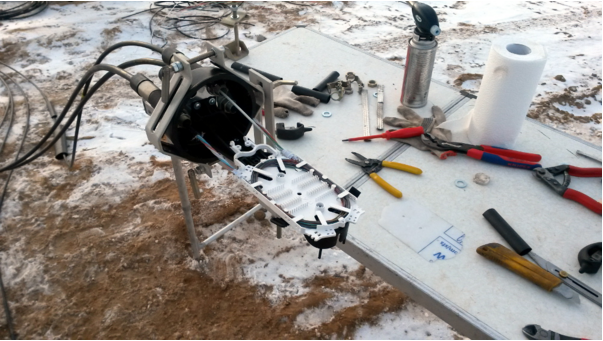
For heating may be suitable ordinary gas in the tank. However, our gas produced under the name “All-Season” is simply not suitable at temperatures below ten degrees.

In this case, some teams will do the following. A gas cylinder with a volume of several liters remains in the car for the duration of the work. It connects the hose with a burner. In this way, couplings can be seated at low temperatures.
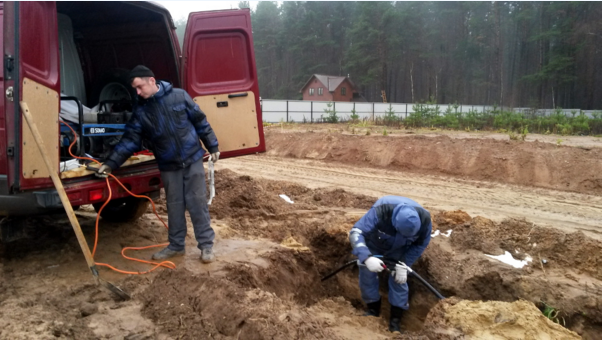
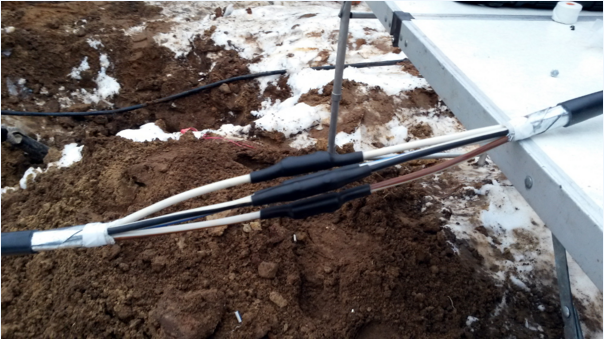
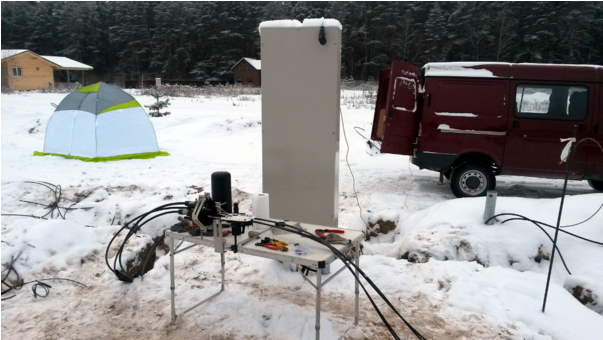

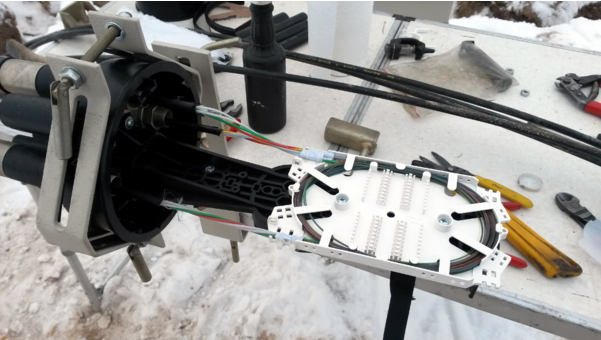

Ready couplings were removed under the ground before settling the first inhabitants. After 18 months, I had to return, because the first houses had already been erected on the territory of the village. The hosts began to demand communication, which means it’s our time to work.
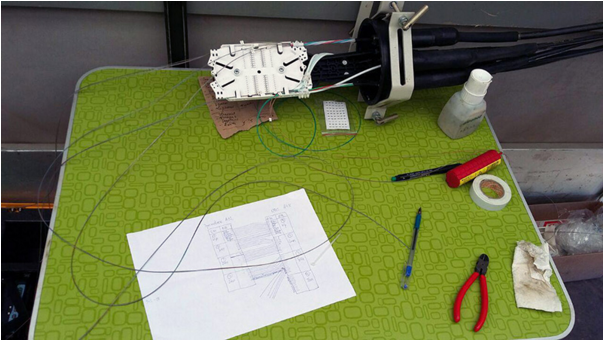
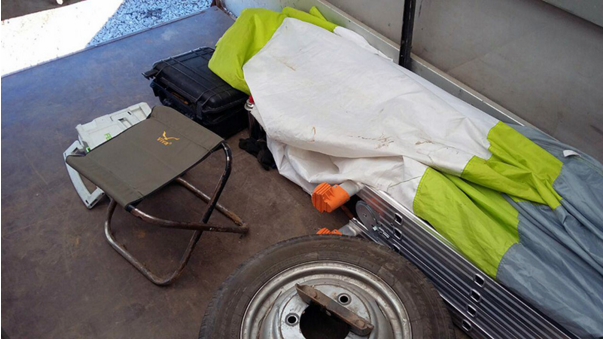
The work was done straight in the back of the car.
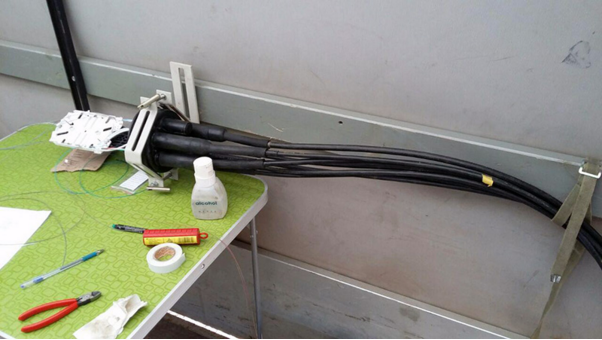

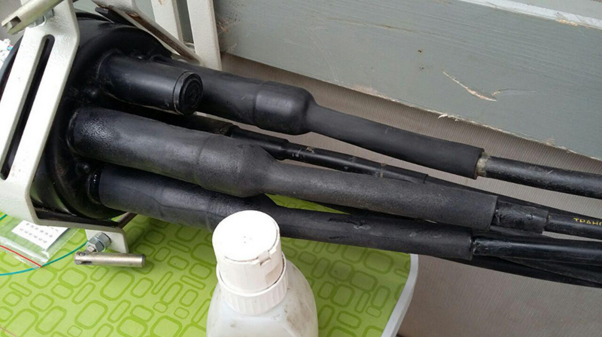
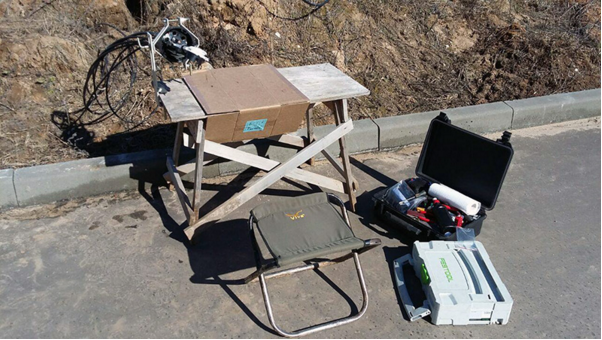
A pair of couplings hidden earlier could not be found. somewhere they poured the trench in the soil, and somewhere the builders tried. For such cases, you always need to have a locator.


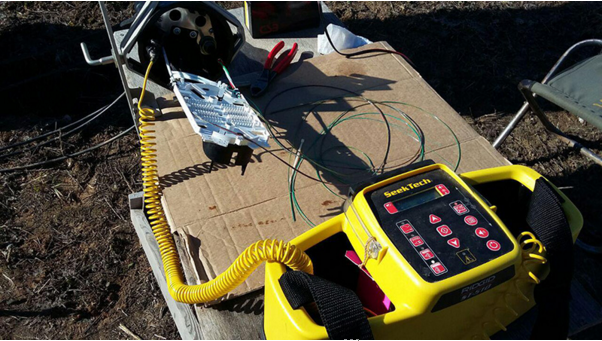
In work the Ridgid SeekTech SR-20 locator is used. The device shows the direction of the cable and even its depth.
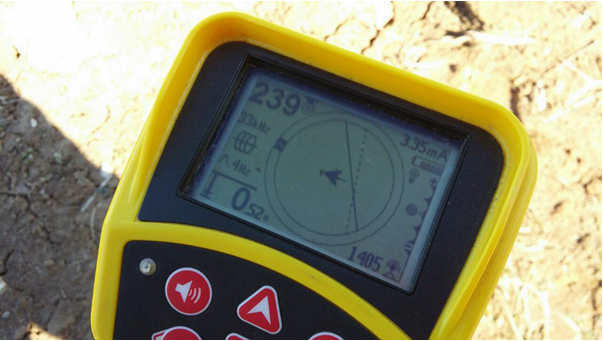
Not long after searching the clutch found and dug up.
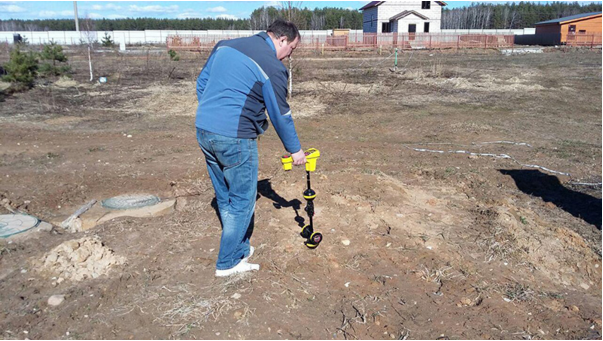
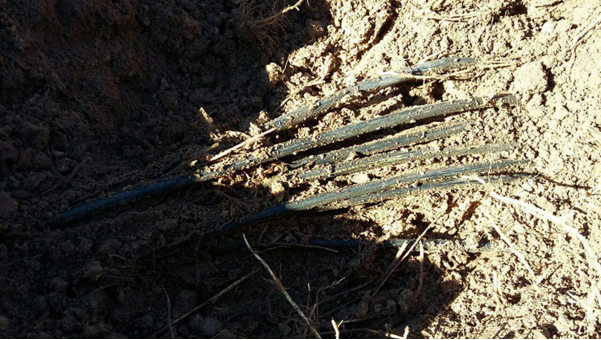

To fix the heavy coupling is perfect here is such a homemade table made of wood.
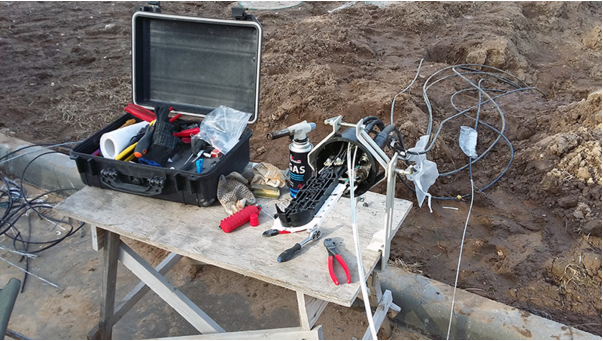
Brewed clutch already in the tent.
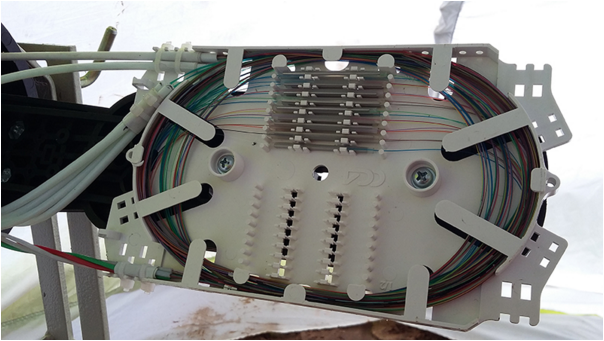
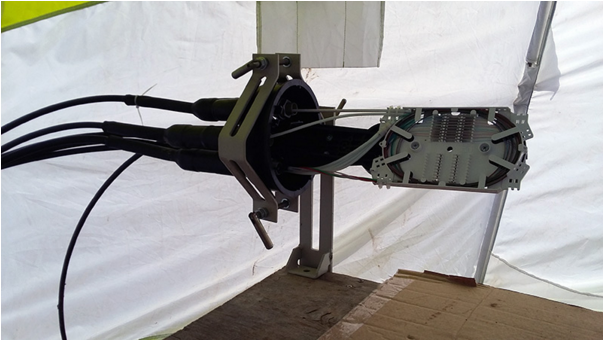
A year under the earth did not pass for optics without a trace. Devices showed attenuation on one of the clutch, and on the other a microcrack was found. In addition, one port broke in the cross.
While the weather allows you to get to work. After the rain, some couplings must be dried in the sun.
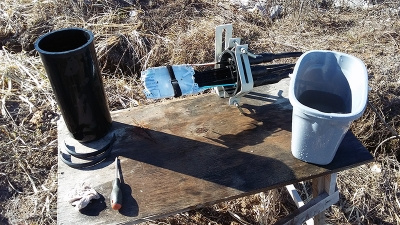
They began to do where there was enough reserve left to pull the clutch to the car.
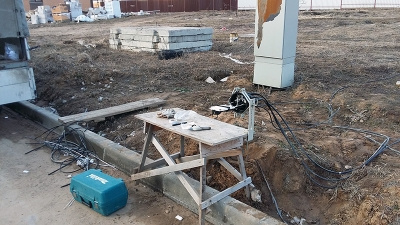
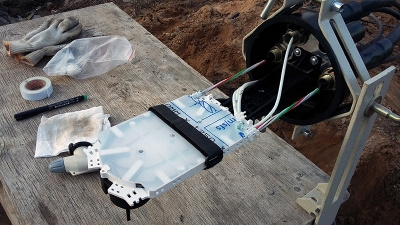
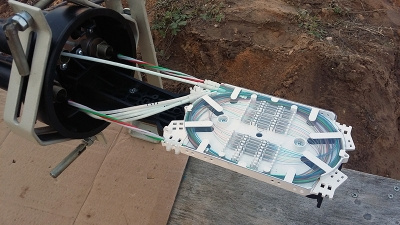
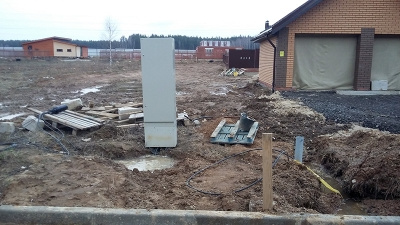
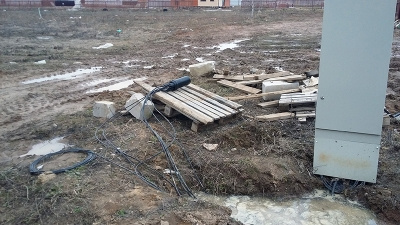
For the installation of couplings it is necessary to make pits. When the clutches are mounted, you still need to enlighten the track with the devices. After that, dry the couplings and seal the covers.
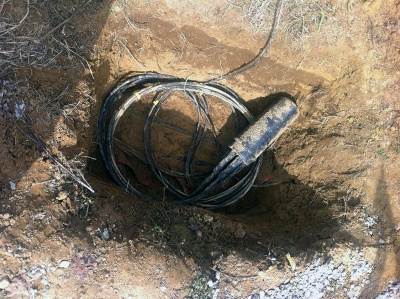
Initially, it was unclear how the site will be located at home, so when laying the cable in a trench, rings were specifically left under the couplings. At each station had to leave a margin of 20 meters. Therefore, in some cases, we will have to build up the cable at our own expense. To use soil couplings here is not justified financially. Therefore, it was decided to use the following
option .
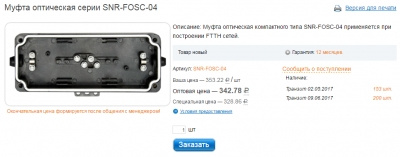
It turned out that this option has long been resorted to in Belarus. To avoid moisture ingress, you will have to resort to a sealant, and then fill the coupling with a hydrophobe.
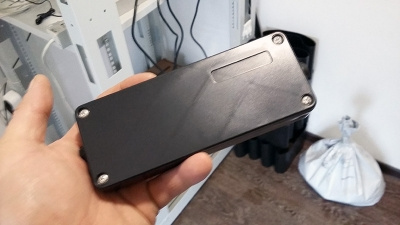
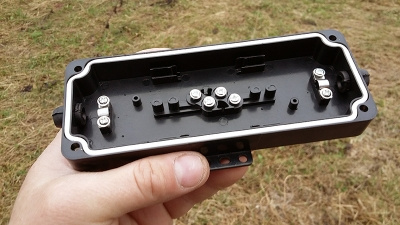
Until we finished all the couplings and repaired all the faults, another week passed.

Once again measured all the lines on the cross. All indicators are normal.
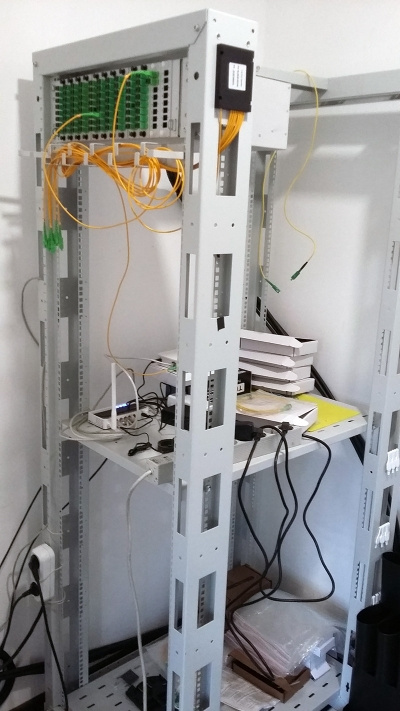

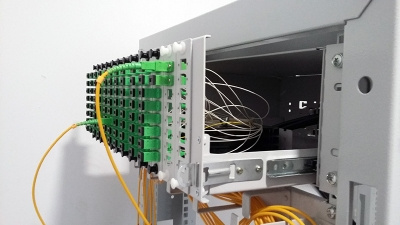
Directly at the client such crosses will be established.
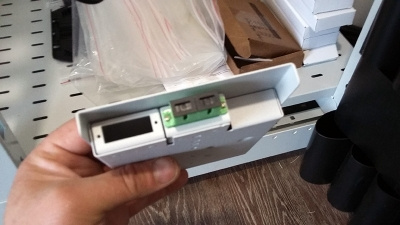
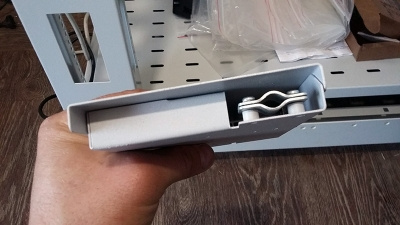
FOCL from a city 10 kilometers long is almost completed. A huge amount has been invested in it, but another similar and already built-up settlement is located nearby.

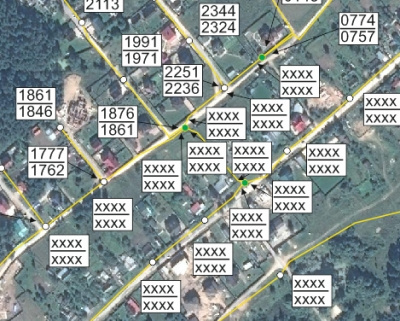
They fully networked a month ago. Soon we will run it to work.